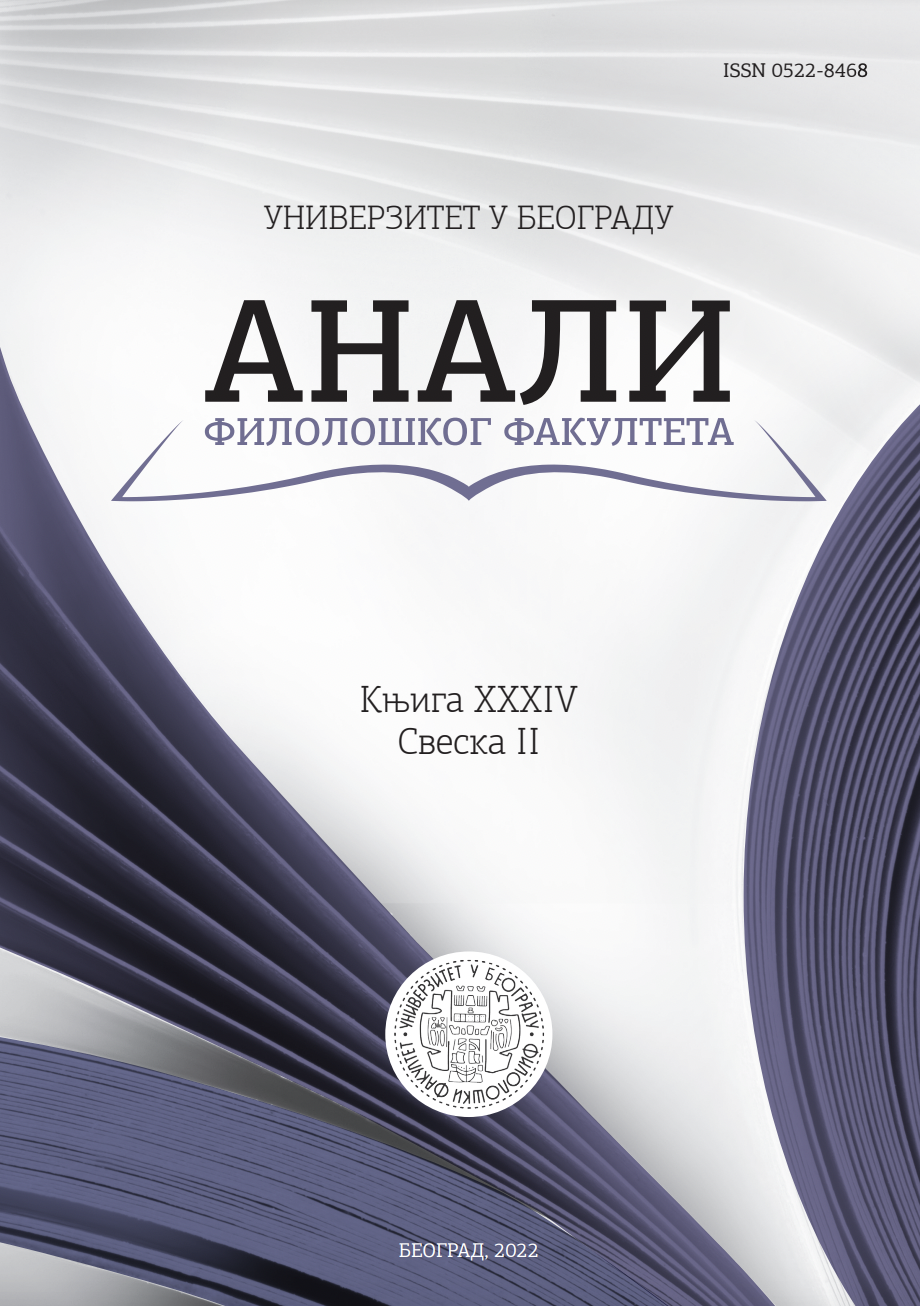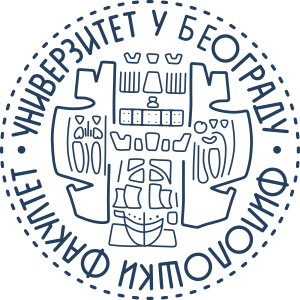O relativizatoru što i njegovim ekvivalentima u francuskom jeziku
DOI:
https://doi.org/10.18485/analiff.2022.34.2.2Кључне речи:
relativna rečenica, relativizator, antecedent, francuski, srpskiАпстракт
U ovom radu razmatraćemo relativizator što u srpskom jeziku, kojem odgovaraju različiti relativizatori u francuskom jeziku. Naime, u srpskom jeziku razlikuje se nepromenljivo što, koje se često smatra i veznikom, a koje je u odnosu sintaksičke sinonimije sa relativizatorom koji (On je licemer što se pretvara pred ljudima) i promenljivo što sa vrednošću zamenice, a koje ima različite funkcije (Saznao je lošu vest, što ga je rastužilo; Nemoj nikom reći ono što sam ti rekla, itd.). Oslanjajući se na savremene radove koji se bave ovom problematikom, opisaćemo upotrebe pomenutog relativizatora u srpskom, a potom ćemo, na korpusu ekscerpiranom iz srpskih romana i njihovih objavljenih prevoda na francuski jezik, analizirati njegove ekvivalente u francuskom jeziku, te uslove u kojima se ti ekvivalenti realizuju.
Downloads
Downloads
Објављено
Број часописа
Рубрика
Лиценца

Овај рад је под Creative Commons Aуторство-Дели под истим условима 4.0 Интернационална лиценца.
Authors who publish with this journal agree to the following terms:
- Authors are confirming that they are the authors of the submitting article, which will be published (print and online) in the journal Anali filološkog fakulteta by the Faculty of Philology, University of Belgrade (Faculty of Philology, Studentski trg 3, 11000 Belgrade, Serbia). Author’s name will be evident in the printed article in the journal. All decisions regarding layout and distribution of the work are in hands of the publisher.
- Authors guarantee that the work is their own original creation and does not infringe any statutory or common-law copyright or any proprietary right of any third party. In case of claims by third parties, authors commit their self to defend the interests of the publisher, and shall cover any potential costs.
- Authors retain copyright and grant the journal right of first publication with the work simultaneously licensed under a Creative Commons Attribution-ShareAlike 4.0 International License that allows others to share the work with an acknowledgement of the work's authorship and initial publication in this journal.
- Authors are able to enter into separate, additional contractual arrangements for the non-exclusive distribution of the journal's published version of the work (e.g., post it to an institutional repository or publish it in a book), with an acknowledgement of its initial publication in this journal.
- Authors are permitted and encouraged to post their work online (e.g., in institutional repositories or on their website) prior to and during the submission process, as it can lead to productive exchanges, as well as earlier and greater citation of published work.





